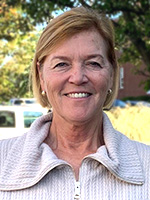Patti Page sweetly assured that we would fall in love with old Cape Cod in 1957. Her prediction came true for homeowners and real estate investors. However, recent changes to the National Flood Insurance Program (NFIP) threatened this love affair, until Congress took action.
Cape Cod is blessed with sandy beaches, salt marshes, and protective harbors. But the Cape is cursed with sudden storms that rearrange the shore and damage coastal property. The NFIP took effect in 1968, after private insurers excluded flood hazard coverage from their standard policies. The NFIP authorizes the Federal Emergency Management Agency (FEMA) to identify Special Flood Hazard Areas on Flood Insurance Rate Maps. The program discourages development in those areas, without flood insurance available through the NFIP. Unfortunately, flood insurance premiums often do not reflect actual risks of flood losses, with about 20 percent of policyholders’ premiums being subsidized. The NFIP pays out more in claims than it receives in premiums, and the federal government’s general revenues are tapped to cover the difference. Taxpayers living outside flood zones effectively subsidize flood insurance premiums on many coastal homes, which often belong to wealthy individuals.
For decades the NFIP’s losses were manageable, but its deficit ballooned to $24 billion after Hurricane Katrina and Superstorm Sandy. The program was taxed by flood damage to older structures built before the NFIP was adopted. Repetitive loss payments on high-risk properties aggravated the problem.
In response to this flood tide of red ink, Congress passed the Biggert-Waters Flood Insurance Reform Act of 2012. This legislation required steep annual increases to flood insurance premiums on many subsidized properties, and would have ended insurance subsidies on properties when sold to new owners. The legislation pushed FEMA to update Flood Insurance Rate Maps, placing properties thought to be safe from flooding into Special Flood Hazard Areas. The changes to FEMA’s flood maps would have especially impacted the Town of Dennis, with about 4,000 homes added to flood zones.
Higher premiums and expanded flood zones presented a double whammy that threatened Cape property values. After unanimously backing the Biggert-Waters Act in 2012, Massachusetts’ congressional delegation reconsidered, and sought to mitigate the law’s effects. Congressman Bill Keating, representing the South Shore and Cape, challenged FEMA’s remapping methodology.
To forestall negative impacts of the Biggert-Waters Act, Congress passed the Homeowner Flood Insurance Affordability Act of 2014, which the president signed into law in March. This legislation delays major premium increases and implementation of FEMA’s new maps, while FEMA develops a plan to make premiums more affordable. Some policyholders can recover premium refunds for policies purchased since 2012. The law also compensates homeowners who successfully appeal FEMA’s new maps that place their properties in flood zones. Sellers of subsidized homes may pass along their lower premium rates to buyers, thus protecting property values which might have dropped if buyers had to pay full-risk premiums. The legislation also imposes annual $25 insurance surcharges on primary residences, and $250 surcharges on other properties, to add fiscal stability to the program.
The Homeowner Flood Insurance Affordability Act is a rare instance of bipartisan cooperation in Washington. The legislation recognizes the NFIP’s snowballing deficits, then offers a long-term solution without immediately foisting draconian premium increases on coastal property owners. This approach should sustain Cape property values, while allowing premiums to gradually rise over time, eventually eliminating subsidized flood insurance.
With the Homeowner Flood Insurance Affordability Act now in the books, our love for the Cape continues, as does the Cape’s robust real estate market.
View/Print the article in PDF format
BY CHRISTOPHER R. VACCARO – SPECIAL TO BANKER & TRADESMAN

 Thomas Zine
Thomas Zine Maro Titus has a deep connection to the Falmouth Community that dates back to her childhood, shaping her passion for the area. Leveraging her successful career in healthcare administration, Maro has transitioned her expertise to Kinlin Grover Compass Real Estate. As a dedicated agent, she strives to understand each client’s unique needs, bringing a wealth of marketing knowledge and enthusiasm to the real estate practice. With a background in executive leadership encompassing strategic planning, government affairs, and business development, Maro’s professional journey is marked by a commitment to excellence.
Maro Titus has a deep connection to the Falmouth Community that dates back to her childhood, shaping her passion for the area. Leveraging her successful career in healthcare administration, Maro has transitioned her expertise to Kinlin Grover Compass Real Estate. As a dedicated agent, she strives to understand each client’s unique needs, bringing a wealth of marketing knowledge and enthusiasm to the real estate practice. With a background in executive leadership encompassing strategic planning, government affairs, and business development, Maro’s professional journey is marked by a commitment to excellence. Marie Bigelow retired in 2014 from Corporate Banking in Boston after 28 years, mostly with BankBoston, Citizens, and Santander Bank. Her banking experience is primarily as a Senior Credit professional with experience in diversified lending arenas including Non-Profit, Large Corporate, Middle Market, Asset Based, Leveraged Finance and Commercial Real Estate Lending. She brings strong financial analysis, real estate finance, and loan structuring experience to her new role at FHT.
Marie Bigelow retired in 2014 from Corporate Banking in Boston after 28 years, mostly with BankBoston, Citizens, and Santander Bank. Her banking experience is primarily as a Senior Credit professional with experience in diversified lending arenas including Non-Profit, Large Corporate, Middle Market, Asset Based, Leveraged Finance and Commercial Real Estate Lending. She brings strong financial analysis, real estate finance, and loan structuring experience to her new role at FHT. Sudie Gifford comes to our board with an extremely varied background in arts, education, finance, public relations, and charity work.
Sudie Gifford comes to our board with an extremely varied background in arts, education, finance, public relations, and charity work. David Sutkowy has lived in Falmouth since 2020.
David Sutkowy has lived in Falmouth since 2020.  After completing a 35 year career in marketing and communications, most recently as Senior Vice-President of Marketing for Dunkin’ U.S. – with previous marketing leadership roles at The Gillette Company and Ocean Spray Cranberries – Tom Manchester currently sits on the board and is an investor in a start-up business, The Mobile Locker Company and is also an instructor for Sports Marketing at Stonehill College.
After completing a 35 year career in marketing and communications, most recently as Senior Vice-President of Marketing for Dunkin’ U.S. – with previous marketing leadership roles at The Gillette Company and Ocean Spray Cranberries – Tom Manchester currently sits on the board and is an investor in a start-up business, The Mobile Locker Company and is also an instructor for Sports Marketing at Stonehill College.  Savannah Fabbio lives in East Falmouth with her husband Jay and is a Mortgage Loan Officer for Shamrock Home Loans in Osterville. Prior to this she was an Assistant Vice President and Branch Manager for The Cooperative Bank of Cape Cod and Assistant Manager at Citizens Bank.
Savannah Fabbio lives in East Falmouth with her husband Jay and is a Mortgage Loan Officer for Shamrock Home Loans in Osterville. Prior to this she was an Assistant Vice President and Branch Manager for The Cooperative Bank of Cape Cod and Assistant Manager at Citizens Bank. Information coming soon.
Information coming soon. Troy Clarkson is an author and speaker with more than a quarter-century of experience in positions of leadership in government and public service. He has been actively involved in his beloved Falmouth since his teen years, when he wrote and published ‘The Cove Chronicle,’ a newspaper that he sold door-to-door for a quarter and that documented the lives of his friends and neighbors.
Troy Clarkson is an author and speaker with more than a quarter-century of experience in positions of leadership in government and public service. He has been actively involved in his beloved Falmouth since his teen years, when he wrote and published ‘The Cove Chronicle,’ a newspaper that he sold door-to-door for a quarter and that documented the lives of his friends and neighbors. Information coming soon.
Information coming soon. Dave Garrison and his wife, Lori, moved to Falmouth in 2014 after full and interesting careers in Washington DC. Dave was raised in the Boston suburbs. He has been coming to the Cape every summer since 1944.
Dave Garrison and his wife, Lori, moved to Falmouth in 2014 after full and interesting careers in Washington DC. Dave was raised in the Boston suburbs. He has been coming to the Cape every summer since 1944.  Carey Murphy lives in Waquoit with his wife of 31 years, Martha. Their three adult sons are all employed in the ski business, a sport that Carey loves to spend his winter months enjoying. They recently sold their retail business, Kensington’s at Mashpee Commons, after owning and operating it for 29 years.
Carey Murphy lives in Waquoit with his wife of 31 years, Martha. Their three adult sons are all employed in the ski business, a sport that Carey loves to spend his winter months enjoying. They recently sold their retail business, Kensington’s at Mashpee Commons, after owning and operating it for 29 years. Kevin McCarthy joined the board of directors of the Falmouth Housing Trust in 2012. Kevin’s entire career has been spent pursuing various “oceans” related endeavors, first as a professional diver, followed by various senior level management positions at a number of oceanographic manufacturing companies, including Klein Associates and Teledyne Benthos. He holds a B.S. from Northeastern University and an M.B.A. from Suffolk University. In 2000, he joined Hydroid LLC, a startup subsea robotics company that was founded to commercialize the REMUS autonomous underwater vehicle technologies developed at the Woods Hole Oceanographic Institution. In 2008, the company was acquired by the Norwegian company, Kongsberg Maritime. Kevin retired from his position of Vice President of Marketing in 2010 to devote more time to his passion for wildlife photography. Some of his work can be viewed at: www.McCarthyNatureImages.com.
Kevin McCarthy joined the board of directors of the Falmouth Housing Trust in 2012. Kevin’s entire career has been spent pursuing various “oceans” related endeavors, first as a professional diver, followed by various senior level management positions at a number of oceanographic manufacturing companies, including Klein Associates and Teledyne Benthos. He holds a B.S. from Northeastern University and an M.B.A. from Suffolk University. In 2000, he joined Hydroid LLC, a startup subsea robotics company that was founded to commercialize the REMUS autonomous underwater vehicle technologies developed at the Woods Hole Oceanographic Institution. In 2008, the company was acquired by the Norwegian company, Kongsberg Maritime. Kevin retired from his position of Vice President of Marketing in 2010 to devote more time to his passion for wildlife photography. Some of his work can be viewed at: www.McCarthyNatureImages.com. Beth Ciarletta grew up in rural New Jersey then moved to Raleigh, NC for eighteen years where she met her husband Michael, co-founded a business, married and began their family. She relocated to Falmouth in 2012 with her husband to raise their children in a smaller community-based town, and to be closer to family. Her husband’s family lives in Norwood, MA and vacationed in Falmouth and on Cape Cod for many years.
Beth Ciarletta grew up in rural New Jersey then moved to Raleigh, NC for eighteen years where she met her husband Michael, co-founded a business, married and began their family. She relocated to Falmouth in 2012 with her husband to raise their children in a smaller community-based town, and to be closer to family. Her husband’s family lives in Norwood, MA and vacationed in Falmouth and on Cape Cod for many years. Kenneth Buckland and his family; wife Nicolette and two boys, moved to Falmouth during Hurricane Gloria in 1985. They moved to town so that Ken could take the position as the Town Planner.
Kenneth Buckland and his family; wife Nicolette and two boys, moved to Falmouth during Hurricane Gloria in 1985. They moved to town so that Ken could take the position as the Town Planner. Joan Bates has lived in Falmouth with her husband, Robert, since 2002. Prior to that, the couple lived in Newton. Joan’s 25-year professional career was in special education and nonprofit management.
Joan Bates has lived in Falmouth with her husband, Robert, since 2002. Prior to that, the couple lived in Newton. Joan’s 25-year professional career was in special education and nonprofit management. Susan Roman is the Owner of
Susan Roman is the Owner of  Joanne O’Sullivan is a real estate attorney who has been practicing law in Falmouth since 1995. She is a self described “wash-ashore” living on Cape Cod for close to 20 years. Joanne grew up in South Boston, and graduated from the University of Chicago and Boston College Law School. Attorney O’Sullivan has been a sole practitioner for the past six years. She is married and her children are enrolled in the Falmouth Public Schools. Ms. O’Sullivan joined the FHT Board of Directors in 2009 and became Vice President in 2011.
Joanne O’Sullivan is a real estate attorney who has been practicing law in Falmouth since 1995. She is a self described “wash-ashore” living on Cape Cod for close to 20 years. Joanne grew up in South Boston, and graduated from the University of Chicago and Boston College Law School. Attorney O’Sullivan has been a sole practitioner for the past six years. She is married and her children are enrolled in the Falmouth Public Schools. Ms. O’Sullivan joined the FHT Board of Directors in 2009 and became Vice President in 2011. Director, Addie Drolette, is a Falmouth native and makes her home in East Falmouth. Most of Addie’s professional career has been spent serving the mortgage financing needs of the community of Falmouth. She is presently a Senior Residential Loan Officer with Martha’s Vineyard Bank.
Director, Addie Drolette, is a Falmouth native and makes her home in East Falmouth. Most of Addie’s professional career has been spent serving the mortgage financing needs of the community of Falmouth. She is presently a Senior Residential Loan Officer with Martha’s Vineyard Bank.